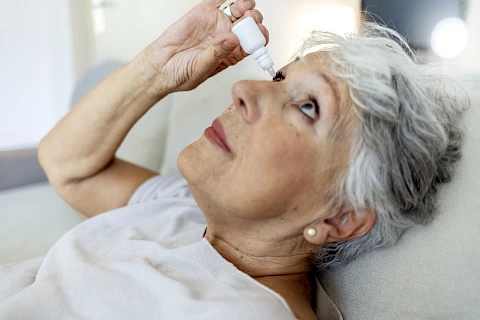
Dry, itchy eyes are a common problem for seniors. As we get older, our bodies undergo many changes. Our eyes are no exception. Dealing with dry, itchy eyes can be uncomfortable and disruptive to daily life. Learn the possible causes and steps to take to address them to maintain overall eye health and comfort.
1. Age-Related Changes
One of the main reasons seniors experience dry, itchy eyes is due to natural age-related changes. As we grow older, our bodies produce fewer tears, which are necessary for keeping our eyes moist and comfortable. Additionally, the skin around our eyes becomes thinner with age, making it harder to retain moisture. These changes can lead to persistent dryness and itchiness.
2. Dehydration
Dehydration is another common cause of dry, itchy eyes in seniors. As we age, our sense of thirst diminishes, and we might not drink enough fluids. Seniors are also more likely to take medications that can lead to dehydration. When our bodies lack sufficient water, it affects our eyes' ability to stay hydrated, resulting in dryness and discomfort.
3. Medications
Various medications can contribute to dry eyes. Common culprits include:
- Antihistamines
- Blood pressure medications
- Antidepressants
- Diuretics
These medications can reduce tear production, leading to dry, itchy eyes. If you suspect your medications might be causing dry eyes, talk to your doctor about possible alternatives or solutions.
4. Environmental Factors
Environmental factors can greatly impact eye moisture, especially in dry climates like Scottsdale and surrounding areas. Factors include dry air, low humidity, indoor heating, and air conditioning. These elements can all reduce the moisture in the air, making it harder for your eyes to stay lubricated. Using a humidifier at home can help counteract these effects.
5. Health Conditions
Certain health conditions can also cause dry, itchy eyes. Some of these conditions include diabetes, rheumatoid arthritis, and thyroid disorders. These health issues can affect tear production and overall eye health. Managing these conditions effectively often helps alleviate dry eye symptoms.
6. Eye Conditions
Specific eye conditions can lead to dry, itchy eyes. These include:
- Blepharitis: This is an inflammation of the eyelids that can block oil glands and reduce tear production.
- Meibomian Gland Dysfunction: The Meibomian glands produce oils that prevent tears from evaporating too quickly. Dysfunction in these glands can lead to dry eyes.
- Conjunctivitis: Also known as pink eye, this condition can cause dryness and itchiness.
If you have any of these conditions, treating them can help relieve your dry eye symptoms.
7. Lifestyle Factors
Certain lifestyle choices can exacerbate dry eyes. Spending too much time in front of screens can cause digital eye strain, leading to dryness. Smoking and excessive alcohol consumption can also reduce tear production. Making healthier lifestyle choices can improve eye comfort.
8. Nutritional Deficiencies
A lack of essential nutrients can lead to dry, itchy eyes. Deficiencies in essential fatty acids and vitamin A are particularly problematic. These nutrients are necessary for maintaining healthy tear production and overall eye health. Ensuring a balanced diet can help keep your eyes well-nourished and comfortable.
How Senior Helpers of Scottsdale Can Help
Dry, itchy eyes can significantly impact your quality of life. By understanding the various causes, you can take steps to address them and improve your eye health. If you or a loved one are struggling with dry, itchy eyes, consult with an eye doctor for a proper diagnosis and treatment plan.
For seniors living in Fountain Hills, Cave Creek, Scottsdale, Mesa, or Paradise Valley, Senior Helpers Scottsdale offers personalized care services to help manage health issues like dry, itchy eyes. Contact us today to learn more.